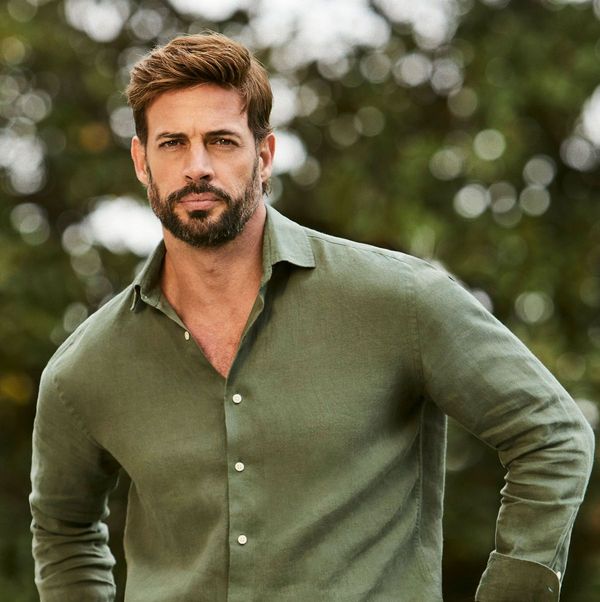
“I’d say, if I had a grade myself on playing, I’ve played B or C tennis so far this year,” Ben Shelton says. “I don’t think that I’ve played my best tennis this season. I don’t think that we’ve seen my peak this year.”
Shelton is fresh off of Wimbledon when he tells me this. The same grand slam where, in a span of a week, he played three grueling five-setters and two doubles matches before falling to world No 1 Jannik Sinner in the round of 16. He also began the tournament with a bone bruise on his knee from a bad fall at a practice. “I actually wasn’t sure if I was going to play,” he says.
Last year, he lost in the second round, and two years ago, he stepped on grass for the first time. Still, Shelton is unsatisfied. “I’m fortunate for what I’ve been able to do in my career so far, but obviously not happy with where I’m at,” he says.
This is Shelton’s second full year on tour. The 6ft 4in American was about to enter his junior year playing tennis at the University of Florida where his father coached when he decided to turn pro. His serve – lefty and clocking at speeds as high as 150mph – has spectators sitting on the baseline on high alert, afraid they’ll catch a stray. With a rocket for a serve, a massive forehand and come-ons! tailor-made for rowdy tennis stadiums, he made a surprise run to the quarter-finals of last year’s Australian Open. Then, the semis of last year’s US Open.
This year, he briefly became the No 1 American man on tour. Going into the US Open, which starts on Monday in Flushing Meadows, he’s ranked 13th in the world. With a long grand slam drought in American men’s tennis, some commentators have eyed Ben’s game and wondered: is he the next great hope for US men?
Certainly, the competitor in him is suited to be the next great thing – and the assuredness that he’s nowhere near his peak. “The mental side, the competitive side is what’s got me so far this year, even though I haven’t felt perfect out there on the court,” he says. “How much I’m willing to stay out there and fight has kind of been the deciding factor that’s helped me in a lot of my matches at Wimbledon, even though I wouldn’t play my best.”
***
The severe assessment of his game is at odds with the 21-year-old I speak with a week later at the Mubadala Citi DC Open in Washington DC. Shelton is laughing with his team when he comes off the doubles court to fulfill his media obligations. It’s been a long day: two rain delays pushed his match into the evening before it ended in a loss. We sit catty corner on couches in the players’ area, and he takes a minute to bring me in on the joke that had them in fits. It’s off-color, but he’s doubling over in laughter again, and I can’t help but laugh along with him.
“Sorry, we’re children,” he says, throwing his friend under the bus with him. “I apologize,” he says, cracking a dimpled smile. He drapes a towel over his broad shoulders, takes his second post-match protein shake from his trainer, and readies himself to talk tennis.
Shelton started caring about tennis late in a sport where most kids specialize young – and all too often burn out. Early on, he bucked the legacy of his father Bryan Shelton, a former professional, and his mother, a highly ranked junior.
“I thought tennis was a boring sport. Football and basketball and baseball were the cooler sports to play in America. So those were the ones that I was obsessed with when I was little. But here we are,” he says with a laugh.
When he saw his sister missing school to play tournaments, his tune changed. He was 13. But rather than play the junior grand slams, Shelton stayed closer to home, and when it came to deciding on college, he chose the University of Florida in his backyard and where his father was the coach.
“I was pretty underdeveloped when I got to college. I had a lot of holes in my game,” he says. “I was a little bit of a mental case on the court, I got angry pretty easily. But you know, when you don’t do the right things on a college team, when your dad’s the coach, the punishment is a lot harsher than other guys on the team would have. I learned fairly quickly to straighten things out and figure out how to be a good teammate, fly under the radar when I needed to, and have less of those outbursts or bad practices or missing a workout because I was sleeping in.”
What were those punishments? “He would just get on me and scream at me more than the other guys, but I get it because you can’t show favoritism. Or I’d have to run sprints in front of everybody if I showed up late, but if someone else showed up late and then I showed up late, I was running a lot more sprints than they were.”
But he credits the team for keeping him in check. “I think tennis can be a selfish sport, and a lot of people think the world revolves around them being a professional tennis player, because your team caters to you, and the tournament caters to you and everything.”
“But I had the opportunity of playing on a team and supporting my teammates, even being on the bench sometimes and letting other guys get the credit. I think it’s something that’s helped me as a person a lot, and it makes things tough sometimes out on the tennis tour, because you are out here by yourself and competing by yourself, and I do really miss the team aspect that I had in college and then other team sports.”
Shelton spent a year on tour before his dad joined him. Shelton says his dad has chilled out, and in matches, the elder Shelton is the picture of serenity in contrast to the younger’s boisterous post-point celebration. But it’s clear they speak the same language: Bryan offers a word or two of advice and Ben is already nodding, ready to play the next point.
“His ability to adapt is what makes him a great coach,” Shelton says. “He doesn’t have to just be talking in my ear all the time or just sitting back and watching. He kind of does both. He reads me and understands what I need in the moment, he gives me the information when he thinks I’ll use it. He’ll pull back some when he thinks that I got it myself.”
There was an advantage to starting late, too, even to the holes in the game: Shelton was always chasing after better players.
“It gave me a chaser’s or hunter’s mentality,” he says. “I was never the best in my age group. There were always guys to chase after, and I always had room for improvement, and there was always people doing things better than I was doing. So I don’t feel like I ever got complacent or thought I was too good to continue working hard.”
Today, Shelton is still chasing better competitors, but he’s trusting the process. “I’m not the complete player that I want to be yet, and so I’m OK with taking what some would call a step backwards to continue to improve,” he says.
He ticks off the parts of the game he’s currently working on: movement, return of serve, serve and overall shot tolerance. “When I’m moving really well, I usually play really well, and that’s something that’s not there 100% of the time for me yet,” he says. The return of serve has been “in the past, a liability,” he acknowledges. And his game wouldn’t be what it is without the serve – “a weapon that needs to continue to improve”.
Already, his points are longer, and he’s winning more of them. He’s worked on coming into net more, capitalizing on his weapons, and he’s playing doubles to get reps.
He credits the mental side for how deep he’s been able to get into tournaments this year. “Once the physical side, the actual tennis starts coming along with it, I think I’ll be in a really good place.”
***
Shelton remained in the US during the Olympics, starting the hard-court season while others headed to Paris to play on clay. It’s a choice some players make for money or for points: With many of the best players at the Olympics representing their countries, those who play on the circuit have better odds to make it further in tournaments. I press him on why stayed.
“I’m not really motivated to play tennis because of the points or the prize money. I love playing in front of big crowds. I love playing against the biggest or in the biggest events, against the best players. The Olympics is definitely an attractive event, something that I would really want to play. But for me, it was purely – I didn’t want to go back to Europe again. I’d had enough at this point,” he said, laughing. “The season is long as it is.”
It’s hard to remember that the competitor is still new to the tour. “I never left the country until last year,” he says.
Instead, Shelton stayed in the US ahead of the US Open, trying to find his A game. He acknowledges he’s the type of guy that takes a few weeks to find his groove on a new surface. “I didn’t win hardly any matches in the four tournaments leading up to the Open last year,” he said. “Everyone was talking about me not winning two consecutive matches in a row for the middle part of the year.”
This year, he’s improved his hard court record in the lead up to the US Open. At the DC Open, he made it to the semis. At the Cincinnati Open, he made it to the quarter-finals. But the first match of this hard-court swing got off to a rough start. Shelton fell in his first match of the Atlanta Open to a player ranked 89th in the world. It was a disappointment; the ground was set for him to do well as the top seed. But Shelton is unperturbed.
“It takes a lot for me to hit the panic button, and I’m 21 years old. I don’t have too much that I’m worried about.” Tennis, he says, is about 52 weeks – not one match.
“I want the consistency in my effort, my competitiveness. I want my game to continually improve. But that doesn’t mean that the results will come every single week,” he said. “The greats learn how to get it done week in, week out, no matter how they’re feeling, and that’s something that I’m working towards, but I think takes a lot of experience.”







